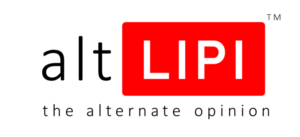Pegasus can’t be wished away as a case of espionage. The technology used in it takes surveillance to a diabolical level leaking documents, conversation, photos, location of its victim.
George Orwell’s 1984 is being played out in 2021. One may not realise it, but we are in the middle of an Orwellian nightmare where nothing is sacrosanct. Every individual must bow to the might of the state which is all-powerful and would preserve it even at your cost. Pegasus is a new toy in their hands to achieve their designs. The software that can hack any mobile phone is now being used by governments, ours included, around the world.
Project Pegasus has rocked the world with its startling revelations. The project is an initiative of non-profit Forbidden Stories and Amnesty International. It has investigated the sale, use/misuse, and potential target of spyware Pegasus. They shared it with 17 reputed media organisations like Washington Post, Guardian, and Le Monde. Their Indian collaborator was The Wire. The governments are reluctant to admit it but they have been using it regardless.
The governments, whether dictatorships or democracies, developed or developing, big or small, are snooping on their citizens. And that is a grim reality of today’s world. As a result, the right to privacy falls flat on its face, bleeding profusely. Welcome to the world of cyber surveillance where nothing you do is hidden from the prying eyes of the state. Beware, the big brother is watching!
The shockwaves over Pegasus have reached our own shores. Allegedly, 300 odd Indian citizens including journalists, judges, and politicians were targets. They were being snooped upon illegally by the government agencies. It is being claimed by the Project Pegasus that the government bought it from the NSO group. The Group has developed this spyware and leases it only to the government and its agencies. The spyware developed in Israel is being used by governments across the globe.
Pegasus has proved that there is no limit to privacy intrusion and nobody, howsoever high and mighty one might by, is immune from it. Pegasus was found on the phone of French President Emmanuel Macron, Amazon chief, and Washington Post owner Jeff Bezos.
It may look like a simple case of espionage, but it is not. In fact, Pegasus is not an ordinary spying tool as it takes surveillance to the next, diabolical, level. It has the potential to leak your documents, conversation, photos, location even when you are not using the phone. Its implications are sinister. Washington Post journalist Jamal Khashoggi was murdered inside the UAE Embassy in Turkey. He had his phone compromised with Pegasus. The spyware was leaking all his moves and movements which eventually led to his cold-blooded murder. UAE crown prince, Salman bin Ahmad Al Saud, is said to be behind his killing as he was writing uncomfortable stories about the Royal family. Ironically, UAE does not recognise Israel but has no qualms about using its spyware.
After Khashoggi’s murder, The Washington Post started a campaign against the Crown Prince. And the prince once again relied upon Pegasus to exact revenge. A few months later, Jeff Bezos’s personal life was on the tabloids. Information about his personal life was all over the press. No prize for guessing it right, Bezos’ phone was infected with Pegasus.
This clearly shows the power of Pegasus. If the government decides to spy on its political opponents, it can deal a death blow to the democracy. In India, the mobile phones of 300 people are said to have been infected with Pegasus while as many as 50,000 are identified targets worldwide. Even the iPhone which boasts of flawless security is vulnerable to Pegasus.
According to the Project Pegasus, in India, the Chief Justice of India’s staff, including his intern and her family, was under Pegasus surveillance. So was the Chief Election Commissioner Ashok Lavasa, Opposition leader Rahul Gandhi, political strategist Prashant Kishore, journalists Sidharth Vardharajan, and columnist Swati Chaturvedi and many others. Almost all those who can be considered custodians of democracy were the target, even the information minister.
The Pegasus is no less damaging than the mother of all scandals – the Watergate scandal. The then president of the USA, Richard Nixon, was caught taping the conversation of the Democrats. In the wake of an uproar over the revelation, he had to resign unceremoniously. Not as direct though, Pegasus is many times more damaging. It would not be easy to establish it in a court of law. Proving the responsibility for its purchase and authorisation with pinpoint accuracy would be a Herculean task.
Pegasus has already forced a washout of Parliament’s Monsoon session with the Opposition pitching for a discussion on the issue in the House while the ruling party trying to fend off the move. The government was neither owning up nor denying the presence of Pegasus in its shelf. Even outside Parliament the government neither accepted nor did it deny the claims that it is a client of NSO Group, the behind the Pegasus.
The Pegasus has brought the issue of privacy, a fundamental right guaranteed by the constitution, to the fore. What are the limits of state intervention in a person’s private life and what could be the implications thereof? To be fair to the government, it can buy such spyware to fight the enemies of the state in the interest of national security. Though enemies of the states remain undefined; ministers, journalists, judges certainly do not come under that category. It is tantamount to ‘big brother is watching’ phenomenon. And mind you, we are not yet North Korea or for that matter Saudi Arabia. Nevertheless, it’s difficult to say what course we take in the future.
Legal experts feel that at present, the government can only lawfully intercept information under Section 69 of the Information technology Act on certain limited grounds. Since spyware is not authorised under the law, the use of malware like Pegasus amounts to cybercrime, no matter who uses it. The government, while using it under section 69 of the IT Act, cannot use spyware against ordinary citizens without tangible evidence.
Section 69 of the IT Act reads: Where the Central Government …if satisfied that it is necessary or expedient to do in the interest of the sovereignty or integrity of India, defence of India, security of the State, friendly relations with foreign states or public order or for preventing incitement to the commission of any cognizable offence relating to above or for investigation of any offence, it may, subject to the provisions of sub-section (2), for reasons to be recorded in writing, by order, direct any agency of the appropriate Government to intercept, monitor or decrypt or cause to be intercepted or monitored or decrypted any information generated, transmitted, received or stored in any computer resource.
It categorically pins the responsibility on the authorising official by mentioning that the order must be in writing. Moreover, it should have solid reasons for such surveillance. Spyware usage is tantamount to the hacking of a communication device. It performs activities like copying data, sending data to the outside device. These are classical offenses punishable under Section 66, 43 of the IT Act. Hence, the legal experts feel that spyware cannot be brought under the purview of lawful interception under Section 69 of the Act.
Rahul Gandhi’s phone is said to be infected with the Pegasus. He has been vocal about the government’s intentions in using Pegasus on its citizens. “The prime minister and the home minister have used this weapon against the Indians and our institutions. The only word for this is treason…. and this has to be investigated,” he said.
The outrage on the Pegasus has been phenomenal. Journalists, activists, and lawyers have all come out to with a demand for a full-fledged probe into the case. Over 500 individuals and groups called for an immediate intervention of the Supreme Court in the matter.
A letter, signed by the activists, including Aruna Roy, Anjali Bhardwaj, Harsh Mander, demanded a moratorium on the sale, transfer, and use of Pegasus spyware in India. They also urged the court to direct the Centre and the Israeli firm NSO to answer questions related to the software.
President Ram Nath Kovind has also been urged to intervene in the matter. Seven Opposition parties wrote to the president seeking directions to discuss the Pegasus report in the Parliament. The BSP, RLP, SAD, National Conference, CPI, CPI(M), and the NCP were signatories to the letter.
The government owes an answer to the nation about its role in the matter. The Pegasus controversy is unlikely to die down anytime soon. As of now, it has left the government red-faced, it won’t relent till the government comes clean on the issue. However, it is very unlikely that the actual truth will ever come out. The government can always hide behind the veil of ‘national security and ‘protection of national integrity. But the Pegasus controversy should serve as an alarm for the civil society to keep a vigil against the enemies of the state, as also the state itself!
Disclaimer: We do undertake rigorous checks on content provided by contributors before publishing the same. If you come across some factual errors, kindly bring this into our notice and we shall review your objection and claim as per our policy and display correction credits and corrections on the article itself.
The opinion expressed in the article is of the writer. Writer is a freelance journalist/journalist based in Delhi




























